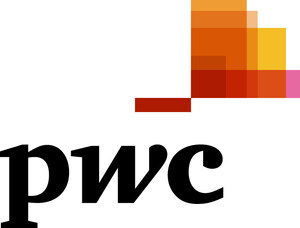NEW YORK, Oct. 23, 2014 /PRNewswire/ -- Investors are concerned about the ability of US corporate boards to understand emerging risks that can affect their companies, the willingness of boards to hold underperforming directors accountable and the effectiveness of how boards incentivize management through performance metrics, according to PwC's 2014 Investor Survey on how investors are shaping boards today and into the future.
In addition, investors say that board leadership could be more invested in recruiting diverse directors and that directors should be more open to changing their current board composition.
"The breadth of dissatisfaction with board performance has narrowed since we first surveyed investors a year ago," said Kayla Gillan, Leader of PwC's Investor Resource Institute. "Today, investors' concerns are more focused on certain areas where they want more information, or are less confident that boards are keeping up with emerging issues."
Key findings from PwC's 2014 survey include the following:
- Grading board performance. Investors are generally happy with the way boards are assessing strategy, with 90% of responding investors expressing satisfaction. In general, investors are also satisfied with the way boards are overseeing risk and maintaining board expertise, both of which received an 84% satisfaction rate. However, 61% of investors are dissatisfied with how boards are assessing director performance, while 48% are unhappy with current shareholder engagement practices. Forty-two percent of investors believe boards need to do a better job of incentivizing management. Furthermore, nearly 40% of surveyed investors do not think boards understand emerging risks that can impact the company.
- Investors want boards with diverse and independent directors who have the right expertise for the job. About 80% of investors consider financial, risk management and operational expertise to be "very important" director attributes. Industry expertise is also an important director characteristic, but investors have slightly more mixed opinions as to the level of its importance. Ninety-six percent of investors say gender diversity on boards is important, but they are evenly split as to whether it is "very" or only "somewhat" important. And when making their director voting decisions, the number one factor that investors consider is the candidate's independence.
- Investors want boards to engage in direct communications. While investors say their engagement with directors has steadily increased both over the last three years and in the past 12 months, 48% of investors are dissatisfied with this dialogue. The majority of investors believe it is most important for directors to communicate with them directly about issues regarding executive compensation, board composition, shareholder proposals, management performance and risk management.
- Risk remains a major topic of concern. Investors are not happy with the information available to them regarding a number of risk topics, including cyber risks (55%), climate change risks (58%) and key performance indicators about risk management objectives (45%). Investors with greater than $100 billion in assets under management are least satisfied, with 73% voicing unhappiness about the level of information available around cyber risks, 64% about climate change risks and 55% with key performance indicators about risk management objectives.
- Clearing the diversity hurdles. Nine in 10 investors believe boards should be revisiting their director diversity policies and 85% say doing so will entail addressing underlying impediments that currently inhibit increased diversity. This will, in most investors' views, require boards to approach diversity with greater openness and commitment.
- Time to revisit board governance policies. Expectations of boards have evolved, and most investors think board policies should keep pace. More than half of investors believe that boards should be discussing—and possibly revising—a number of their governance policies overall. Investors say the biggest issues are policies related to majority voting, board diversity and limits to the number of boards on which directors may sit.
Survey respondents represent a diverse mix of institutional investors with over $11 trillion in aggregate assets under management. About half of respondents represent pension funds and 40% represent asset managers. Based on assets under management, however, traditional asset managers represent 78% of the total pool of responding dollars. The size of responding investors was also diverse but weighted most heavily toward the very largest investors, who manage $100 billion or more. Most have primary operations in the US and invest actively in international markets.
For more information or to download complete findings of PwC's 2014 Investor Survey report, please visit: http://www.pwc.com/us/en/pwc-investor-resource-institute/publications/investor-influence-corporate-boards.jhtml.
About PwC's Investor Resource Institute
PwC's Investor Resource Institute seeks to add value to investors' decision making processes by sharing PwC's insights and educational materials regarding markets, industries, and corporate governance. For more information, please visit http://www.pwc.com/us/InvestorResourceInstitute.
About the PwC Network
PwC firms help organizations and individuals create the value they're looking for. We're a network of firms in 158 countries with close to 169,000 people who are committed to delivering quality in assurance, tax and advisory services. Tell us what matters to you and find out more by visiting us at www.pwc.com.
Logo - http://photos.prnewswire.com/prnh/20100917/NY66894LOGO
To view the original version on PR Newswire, visit:http://www.prnewswire.com/news-releases/pwc-investor-survey-on-governance-identifies-areas-where-investors-want-boards-to-improve-250657668.html
SOURCE PwC
Related Links
WANT YOUR COMPANY'S NEWS FEATURED ON PRNEWSWIRE.COM?
Newsrooms &
Influencers
Digital Media
Outlets
Journalists
Opted In



Share this article